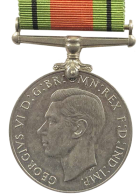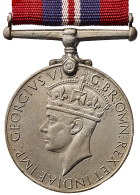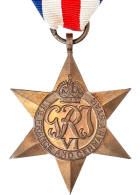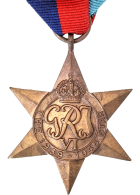Cyril Walter Crain was born on June 11, 1923 in Nottingham, England to Sidney and Florence Crain. He had one brother, Frances Edward, who worked in a bombfactory during the war. Cyrilwas educated at Southwark Street Junior School and Ellis Senior School. He was employed as a wages clerk before enlisting. Cyril trained in Ayrshire, Scotland, acquiring the nickname of ‘Spider’, and practicing amphibious landings, with lots of drill and long marches.As he recalled, “Much of our time was devoted to making landings from L.C.A’s (Landing Craft Assault). They were flat-bottomed and shaped almost like boxes, so that they were able to run up to the beach, but not very good for sailing in. They would toss about like a matchbox, ride to the top of a wave and flop down the other side with a splash. Not very good for the head or stomach!”
Later in 1943, Cyril was attached to The Queen’s Own Rifles of Canada, an infantry regiment from Canada, to prepare for the inevitable assault on Fortress Europe.
After leaving our camp enclosure we boarded our ship, an armed merchant cruiser converted to a landing ship infantry. We were told the invasion date was June 5 but, owing to the atrocious weather conditions, it was delayed for 24 hours. Even then the weather didn't improve much at all, so it was to be "June 6" at early light. We knew that it was France, as we had been paid out in francs (invasionmoney). We could only take ten shillings English currency with us, anyother having had to be changed into francs.
Of our beach signal section, combined operations, only myself and a sergeant were accompanying the assault troops of The Queen's Own Rifles. Another seven members of our section were to follow later. This was to be repeated on the other two sectors, plus the CO (28 in total). The sergeant and myself shared a cabin with two QOR sergeants.
Reveille was about 3:30 am on June 6 and before breakfast we all lined up for our rum ration, after which it was absolution, followed by a short service conducted by the Canadian padre. We then boarded our L.C.A.'s landingcraft assault. Boarding the L.C.A.'s in that kind of stormy weather and the heavy swell was a very risky situation. It was a case of climbing down the scrambling net and judging when to drop into the landing craft. You can imagine the ship rolling one way and the L.C.A. the other. If it was nottimed accurately, it was possible to drop between the ship and the L.C.A.and be crushed to death. In any case you wouldn't survive in that heavy sea, not being able to ditch your equipment (50 Ibs plus a 46 wireless set).
Together, with troops of the QOR, we were seated along the sides of the L.C.A. under a steel overhang about 30" in width. We pulled away from the "mothership" and nearing the coast we heard the guns from the warships pounding away at the coast and the rocket ships lighting the sky where previously the air force had had been softening up the shore defences.
By this time things were really "hotting" up with the shells and bullets splattering all around up. We were now nearing the shore, approaching the crystal defencer, concrete pyramids and angle iron set in concrete with mines fixed to them plus barbed wire, and pointed metalstaves capable of ripping out the bottom of landing craft. Fortunately our craft managed to squeeze between these obstacles more by luck than judgment. Others weren't so fortunate and there were many casualties. The rough sea did not help at all.
Then came the shout "Downdoors!"
The ramps went down and we raced down the ramp quite orderly only to find ourselves up to the waist in water. On reaching "dry" land we raced to reach the sea wall (quite high). Actually not being a good sailor and a bit queasy, I was relieved to get my feet on the ground in spite of the horrific circumstances. All hell was le tloose, with heavy machine gun fire from beyond the seawall, which we climbed and crossed over, and the coastal railway line with more barbedwire obstacles, plus mines. I count myself very lucky to have survived firstly the assault and then the rest of the war. In Normandy there are many cemeteries containing the graves of thousands of allied service men.
My Buddy
In memory of a man from '43
He came from a land across the sea
"Hi there, Limey!" he yelled with a grin
"Hallo!" I replied, "how've you bin"
"Go inside and stow your gear
Bring your pals, we'll go for a beer"
From this moment a friendship grew
We ate, we trained, and socialised too
Then one day the orders came
Realising now this wasn't a game
We boarded ship, then on our way
During the night we gathered to pray
Landing craft lowered seven miles from land
We scrambled down nets, hand over hand
Into the boats, a fearsome task.
Look after us Lord, that's all I ask
Sea was stormy, we had a rough ride.
Looked at my buddy who sat by my side
"Take care Limey, you'll do fine,
Good luck Canuck, old friend of mine"
Ramp went down, we plunged into the swell
The beach before us a living hell
Our feet on the ground, we dashed to the wall
From the comer of my eye I saw him fall
Again and again I still ask why!
My friend from Toronto, why did he die?
This poem is dedicated to Freddy Harris, a sergeant in the Queen's Own Rifles of Canada.
Killed in action on D-Day 1944. "My Buddy"
Cyril Crain









